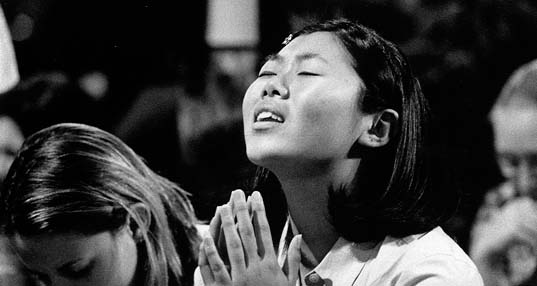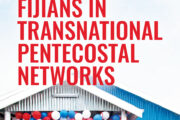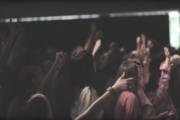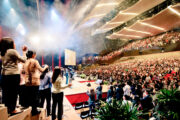The most distinctive characteristic threading through all Pentecostal and Charismatic communities is a desire for the individual believer’s direct experience of divine presence—an ecstatic event often described as “baptism in the Holy Spirit.” This radical spiritual individualism frequently sparks conflict between renewalist groups and established institutions, both religious and secular. It also accounts, at least in part, for renewalism’s appeal in regions where conventional notions of caste, gender, authority and social power are slow to adapt to the breakneck pace of change fueled by global market capitalism.
Music is another key feature of Pentecostal and Charismatic religion. A musically lively worship culture is often one of the first attractions for newcomers to a renewalist congregation, and praise-bands, drumming and other forms of musical expression are integral components of the collective experience of the community. The appropriation of local or indigenous modes of performance also allows renewalist groups to create experiences that are at once familiar and transformative for members.
The “gifts of the Holy Spirit”—speaking in tongues, prophecy and healing, for example—figure into many but not all renewalist movements. While the degree of emphasis on these features of Pentecostal and Charismatic religion is closely related to the style of leadership and the local spiritual practices that shape a given community, an embodied and deeply emotional experience of worship is nonetheless the hallmark of renewalism.
Robin Shoaps, University of Chicago on music in Pentecostalism
PCRI Guatemala








